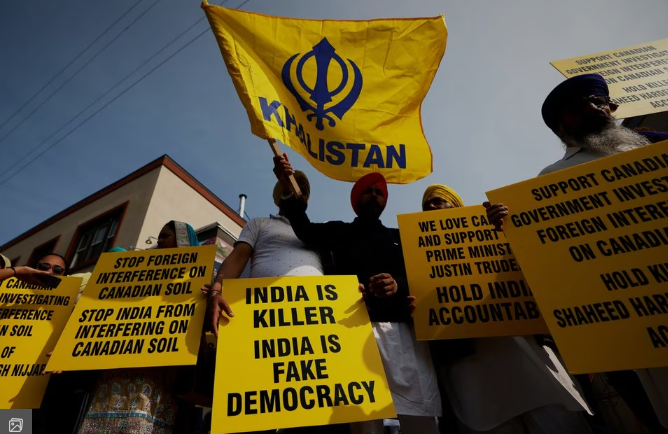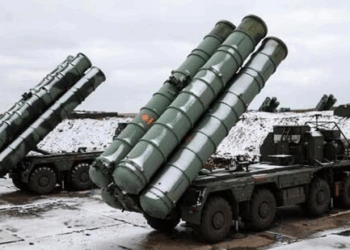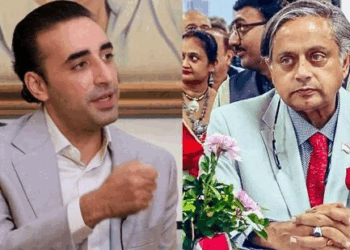The demonstration, organized by a handful of individuals representing the Sikh community in Canada, comes approximately one week after Canadian Prime Minister Justin Trudeau made comments suggesting the potential involvement of Indian government agents in the murder of Sikh separatist leader Hardeep Singh Nijjar in British Columbia earlier this year.
Trudeau’s remarks have led to heightened tensions between Canada and India, with both nations trading diplomatic blows and tit-for-tat expulsions of senior diplomats. The situation has also raised concerns among Sikhs, particularly those living in Canada, who fear the repercussions of the escalating dispute.
The protest outside the Indian diplomatic mission aimed to draw attention to the concerns of the Sikh community in Canada and seek clarity on the allegations made by the Canadian government. Demonstrators called for transparency and a thorough investigation into the murder of Najjar.
Sikh separatism has deep historical roots in Punjab, India, with a history marked by violence and insurgency. The separatist movement, which reached its zenith in the 1980s and 1990s, sought the establishment of an independent Sikh state known as Khalistan. The conflict resulted in a significant loss of life and instability in the region.
In recent years, Punjab has enjoyed relative peace, and the demand for Khalistan has significantly diminished within the region. However, the allegations and diplomatic dispute between Canada and India have added complexity to the issue, leading Sikhs in Canada to express their concerns.
Canada is home to a sizable Sikh population, many of whom have strong connections to Punjab. The ties between the two regions have deep historical and cultural roots.
As diplomatic negotiations and tensions persist, Sikhs in Canada are closely watching the situation, hopeful for a peaceful resolution that addresses their concerns while maintaining the delicate balance of international diplomacy.
The protest in Toronto serves as a visible sign of the concerns and anxieties of Sikhs in Canada, who seek answers and resolution amid a growing international dispute.
The demonstration, organized by a handful of individuals representing the Sikh community in Canada, comes approximately one week after Canadian Prime Minister Justin Trudeau made comments suggesting the potential involvement of Indian government agents in the murder of Sikh separatist leader Hardeep Singh Nijjar in British Columbia earlier this year.
Trudeau’s remarks have led to heightened tensions between Canada and India, with both nations trading diplomatic blows and tit-for-tat expulsions of senior diplomats. The situation has also raised concerns among Sikhs, particularly those living in Canada, who fear the repercussions of the escalating dispute.
The protest outside the Indian diplomatic mission aimed to draw attention to the concerns of the Sikh community in Canada and seek clarity on the allegations made by the Canadian government. Demonstrators called for transparency and a thorough investigation into the murder of Najjar.
Sikh separatism has deep historical roots in Punjab, India, with a history marked by violence and insurgency. The separatist movement, which reached its zenith in the 1980s and 1990s, sought the establishment of an independent Sikh state known as Khalistan. The conflict resulted in a significant loss of life and instability in the region.
In recent years, Punjab has enjoyed relative peace, and the demand for Khalistan has significantly diminished within the region. However, the allegations and diplomatic dispute between Canada and India have added complexity to the issue, leading Sikhs in Canada to express their concerns.
Canada is home to a sizable Sikh population, many of whom have strong connections to Punjab. The ties between the two regions have deep historical and cultural roots.
As diplomatic negotiations and tensions persist, Sikhs in Canada are closely watching the situation, hopeful for a peaceful resolution that addresses their concerns while maintaining the delicate balance of international diplomacy.
The protest in Toronto serves as a visible sign of the concerns and anxieties of Sikhs in Canada, who seek answers and resolution amid a growing international dispute.
The demonstration, organized by a handful of individuals representing the Sikh community in Canada, comes approximately one week after Canadian Prime Minister Justin Trudeau made comments suggesting the potential involvement of Indian government agents in the murder of Sikh separatist leader Hardeep Singh Nijjar in British Columbia earlier this year.
Trudeau’s remarks have led to heightened tensions between Canada and India, with both nations trading diplomatic blows and tit-for-tat expulsions of senior diplomats. The situation has also raised concerns among Sikhs, particularly those living in Canada, who fear the repercussions of the escalating dispute.
The protest outside the Indian diplomatic mission aimed to draw attention to the concerns of the Sikh community in Canada and seek clarity on the allegations made by the Canadian government. Demonstrators called for transparency and a thorough investigation into the murder of Najjar.
Sikh separatism has deep historical roots in Punjab, India, with a history marked by violence and insurgency. The separatist movement, which reached its zenith in the 1980s and 1990s, sought the establishment of an independent Sikh state known as Khalistan. The conflict resulted in a significant loss of life and instability in the region.
In recent years, Punjab has enjoyed relative peace, and the demand for Khalistan has significantly diminished within the region. However, the allegations and diplomatic dispute between Canada and India have added complexity to the issue, leading Sikhs in Canada to express their concerns.
Canada is home to a sizable Sikh population, many of whom have strong connections to Punjab. The ties between the two regions have deep historical and cultural roots.
As diplomatic negotiations and tensions persist, Sikhs in Canada are closely watching the situation, hopeful for a peaceful resolution that addresses their concerns while maintaining the delicate balance of international diplomacy.
The protest in Toronto serves as a visible sign of the concerns and anxieties of Sikhs in Canada, who seek answers and resolution amid a growing international dispute.
The demonstration, organized by a handful of individuals representing the Sikh community in Canada, comes approximately one week after Canadian Prime Minister Justin Trudeau made comments suggesting the potential involvement of Indian government agents in the murder of Sikh separatist leader Hardeep Singh Nijjar in British Columbia earlier this year.
Trudeau’s remarks have led to heightened tensions between Canada and India, with both nations trading diplomatic blows and tit-for-tat expulsions of senior diplomats. The situation has also raised concerns among Sikhs, particularly those living in Canada, who fear the repercussions of the escalating dispute.
The protest outside the Indian diplomatic mission aimed to draw attention to the concerns of the Sikh community in Canada and seek clarity on the allegations made by the Canadian government. Demonstrators called for transparency and a thorough investigation into the murder of Najjar.
Sikh separatism has deep historical roots in Punjab, India, with a history marked by violence and insurgency. The separatist movement, which reached its zenith in the 1980s and 1990s, sought the establishment of an independent Sikh state known as Khalistan. The conflict resulted in a significant loss of life and instability in the region.
In recent years, Punjab has enjoyed relative peace, and the demand for Khalistan has significantly diminished within the region. However, the allegations and diplomatic dispute between Canada and India have added complexity to the issue, leading Sikhs in Canada to express their concerns.
Canada is home to a sizable Sikh population, many of whom have strong connections to Punjab. The ties between the two regions have deep historical and cultural roots.
As diplomatic negotiations and tensions persist, Sikhs in Canada are closely watching the situation, hopeful for a peaceful resolution that addresses their concerns while maintaining the delicate balance of international diplomacy.
The protest in Toronto serves as a visible sign of the concerns and anxieties of Sikhs in Canada, who seek answers and resolution amid a growing international dispute.








 India
India












